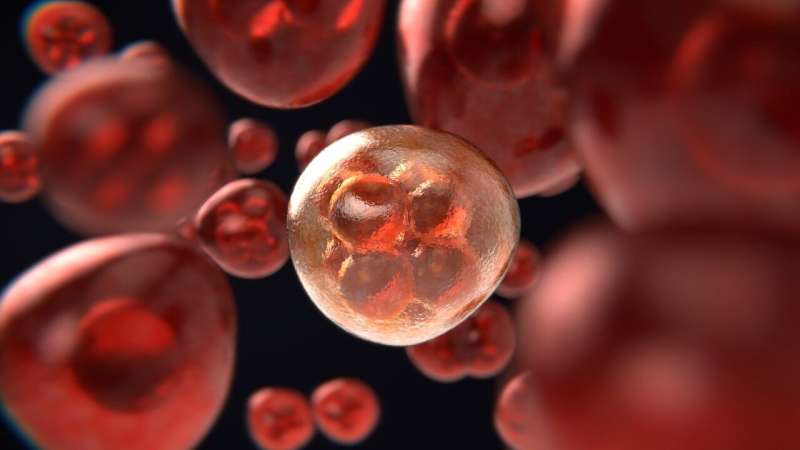Probe detects the mechanism for spread of metastatic cancer cells

A new fluorescent sensor developed by researchers from the University of Adelaide can detect migrating cancer cells and could be used to target medication to stop metastasis in aggressive cancers.
Metastasis—the uncontrolled migration of cancer cells which creates new tumors at different locations in the body—is a major cause of cancer-related deaths.
Research at the University of Adelaide has shown mammalian proteins known as aquaporins are essential for enabling rapid migration in certain classes of aggressive cancer cells.
Aquaporin-1 (AQP1) facilitates movement of water and small solutes like ions across membranes. The levels of AQP1 in cancers rise as the severity of the disease worsens.
The new photoswitchable ion probe was developed by University of Adelaide researchers from the Adelaide Medical School, Institute for Photonics and Advanced Sensing, and the ARC Centre of Excellence for Nanoscale BioPhotonics.
It allows real-time imaging of AQP1 function in living cells as they move, creating a new capability for streamlined drug discovery for these channels using optical screening.
Postdoctoral researcher Dr. Victor Pei, from The Aquaporin Physiology & Drug Discovery Laboratory at The University of Adelaide, said the discovery was applicable to many types of cancer, especially aggressive types like lung, bowel and brain cancers.
"This valuable tool will enable the possibility to screen drugs targeting AQP1 in a fast-paced way,"' Dr. Pei said.
"We are currently developing a fast and efficient drug screening method by incorporating the new sensor. By using this method we can screen hundreds and thousands of drugs and identify potential drugs that might slow down cancer cell migration.
"We have already made significant progress in developing our drug screening method. At the same time, we also have designed a library of novel drug candidates ready to be screened using this method."
The sensor can also be used in agriculture research to monitor the root tip growth under high-salinity environments.
"This might shed more light for salt-tolerant crop research,"' Dr. Pei said.
The research was published in Molecular Pharmacology.
More information: Jinxin V. Pei et al. Development of a Photoswitchable Lithium-Sensitive Probe to Analyze Nonselective Cation Channel Activity in Migrating Cancer Cells, Molecular Pharmacology (2019). DOI: 10.1124/mol.118.115428




















